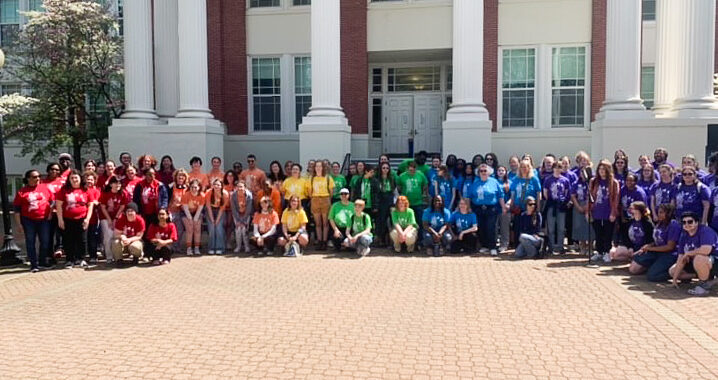Committee proposes changes to general education program
4 min read
green-chameleon-21532-unsplash
By CHLOE MARTIN
Staff Writer
The general education committee has proposed changes to the current general education requirements. These changes, which the committee has been working on since August 2018, include an overall reduction of required credits, shifting from 61 credit hours to 38 in one plan and 44 in the other.
These cuts are intended to be fairly evenly distributed, though the main topic of conversation at the forum was the hit that the language and science requirements will take under either proposed plan. As it stands, students are required to take a language through a 202 level and take a sequential science course of their choosing. With the proposed changes, these will both essentially be cut in half, requiring a maximum of two language courses through the 102 level and discarding the sequential sciences in favor of two seperate, and possibly easier, science courses.
At the public general education committee forum held on Feb. 18, students and faculty gathered to discuss the potential benefits and detriments of the new proposal. This forum was lead by two committee members and university professors, Brooke Di Lauro from the Modern Languages and Literatures department, and Christopher Musina from the Art and Art History department. The discussion began right away with the question from a student in the audience: what were the faults of the original general education requirements?
Professor Di Lauro responded, “They were made before we came up with [our core value] statements. Compared to other Virginia schools they are much larger and with the Passport Program [a program between the local community colleges and the University] these requirements didn’t really match up in terms of what would transfer in, so we’re just trying to make all of those transitions smoother.”
Di Lauro’s presentation laid out the general education credit hour requirements at other Virginia universities. University of Virginia has a 50 credit hour requirement, Christopher Newport University requires 52, and Virginia Commonwealth University has the lowest requirement of 33 credit hours. The 61 credit hour requirement that UMW currently has in place has been cited as a deterrent for both first year applicants and transfer students, according to the panel as well as the students in the audience.
According to Di Lauro, there were roughly 400 less applicants this year than the last, a fact that she attributed to how overwhelming the general education requirement looks to the unknowing applicant. The 73 percent graduation rate may also be related to the general education courses, with students becoming frustrated by the strenuous requirement.
Perhaps the biggest hit to most students’ GPAs comes from the language requirement. According to the committee panel, language courses, specifically required language courses, have the highest “DFW rate” of any courses at the University. The DFW rate is defined as Di Lauro as the amount of Ds, Fs, and withdrawals received in a particular course.
“I do think [the changes in the language requirement] will directly impact your GPA in a positive way, because, if you aren’t passionate about a language, you’re not going to want to put effort into the class,” said freshman Elijah Hanisian. “By allowing people to mainly take courses that they enjoy, your overall UMW experience is going to be better.”
Freshman Olivia Harrington had a slightly different outlook on the change in the language requirement.
“One of the reasons that I wanted to come to UMW was because of the language requirement, because they made you take language classes,” Harrington said. “It was nice that they wanted you to be able to know the world and be competent enough in a language that you can go to a foreign country and be able to somewhat speak to the locals. I think that’s a really valuable skill. Being bilingual is something that is going to help you a lot in life.”
If passed, this change will not only cut down on the existing general education requirements, but it will also introduce a new digital literacy requirement in order to adapt to changing desirable skills in the corporate world.
“We got a lot of feedback that we should include digital literacy, which isn’t currently represented [by the general education requirement], and that we might want to move an SI and a WI class into the major, just to have students be able to communicate at a higher level within their major to prepare them for a career,” said Kelly Perkins, professor of mathematics.
Sophomore Sarah Parker is one student who attended the forum. Learning about the change only in an email, Parker was left with many questions that she hoped could be answered by the general education committee members and other authorities at the discussion.
“I definitely learned more about the proposals and their intentions, the ideas of people from other departments about the proposals, and gained new perspectives on different outlooks that are affected by the proposals,” Parker said. “I wouldn’t necessarily say that [the evolving general education requirement] is a necessary change, but a welcome one. The changes could benefit the university by diversifying its requirements and better fitting students needs, but only if the changes are more effective at maintaining the university’s values than the current proposals will.”











